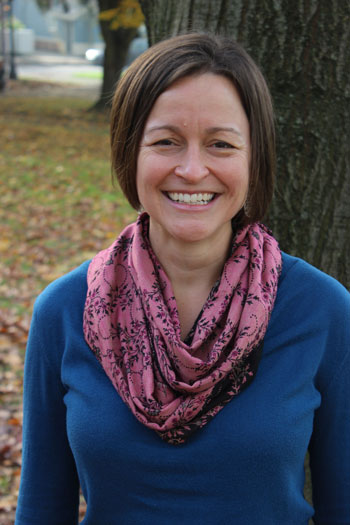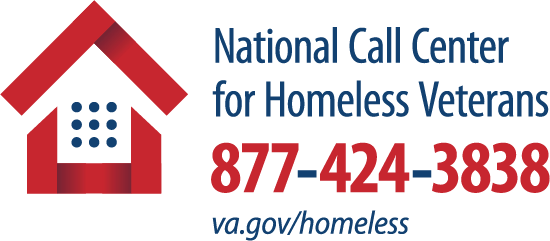Attention A T users. To access the menus on this page please perform the following steps.
1. Please switch auto forms mode to off.
2. Hit enter to expand a main menu option (Health, Benefits, etc).
3. To enter and activate the submenu links, hit the down arrow.
You will now be able to tab or arrow up or down through the submenu options to access/activate the submenu links.
Locator
Contact
Search
HPO Staff Spotlight: Q&A with Eileen Devine, LCSW
 Social Workers’ Training and Skills Help Veterans Exit Homelessness
Social Workers’ Training and Skills Help Veterans Exit Homelessness
From conducting outreach on the street, to helping Veterans navigate the Veterans Health Administration’s (VHA) complex systems, to leading programs that provide Veterans with the services and resources they need, social workers play a vital role in helping Veterans exit homelessness. In this month’s issue of the newsletter, we interview Health Care for Homeless Veterans’ (HCHV) National Director Eileen Devine, a licensed clinical social worker who has worked for the U.S. Department of Veterans Affairs (VA) since 2003. Before transitioning into this position, Ms. Devine spent three years working in VHA’s National Homeless Programs Office as the National Program Manager for the Community Resources and Referral Centers. Previously, she spent four years as the Veterans Integrated Service Network (VISN) 20 Network Homeless Coordinator, which covers Oregon, Washington, Idaho, and Alaska, and also served as the homeless program manager at the Portland, Oregon VA Medical Center.
Can you provide a brief overview of the Health Care for Homeless Veterans program?
The core of the HCHV program is outreach that targets and prioritizes Veterans living on the streets. Along with outreach, the program includes case management, Contracted Residential Services, Low Demand Safe Havens, Community Resource and Referral Centers, and Stand Downs. Through these various services, we can offer Veterans experiencing homelessness one-stop access to multiple VA and community resources at a single location; transitional and emergency housing; clinical and social services necessary to maintain independent housing; and other supports through VA medical centers, community providers, and continuums of care.
What led you to work for the Department of Veterans Affairs?
When I was in graduate school for social work at Portland State University, I did my practicum at the Portland Oregon VA Medical Center. While there, I found I liked working with older adults and became interested in working with Veterans, not only because they were older, but also because of their service and sacrifice. After completing my practicum and graduating from PSU, I was hired by the VA as a social worker. Working for VA gave me the opportunity to apply direct and clinical practice methods with Veterans experiencing serious mental illness, traumatic brain injury, substance use disorders, and homelessness.
How has being an LCSW influenced your leadership style and impacted the way the HCHV program delivers services?
No matter what their role is in an organization, social workers are always helping vulnerable clients navigate complex systems. To become an LCSW, you put in hundreds of hours in supervised clinical training to learn how to motivate, collaborate, and communicate with different people as well as how to consider each person’s perspective, background, issues, and experience. Social workers also are trained to apply macro- and micro-level approaches to problems and challenges. Macro-level social work focuses on the community and systems, preparing a practitioner like myself to lead programs that can spark change on a national scale. Micro-level social work involves direct interaction with clients to address individual problems such helping a Veteran on the street find housing, health care, and social services, preparing social workers to understand this aspect of the healthcare system as well. As an LCSW, I bring together all aspects of my training to benefit Veterans, create a culture that respects and acknowledges the excellence of program staff, and streamline service delivery using a coordinated systems approach.
How has social work influenced your trajectory in VA?
One of the primary pillars of the social work discipline is its strengths-based approach. Social workers are always looking at ways we can improve and then lean on our strengths to achieve our goals. While this approach is effective when working with Veterans, it also is a valuable skill that lets me manage multiple programs and priorities in a very complicated system.
How has HCHV adapted services to women Veterans?
The life experiences, roles, and needs of women Veterans enrolled in HCHV are different than those of male Veterans. This has required us to adapt or adjust services so we address such issues as military sexual trauma or the need for emergency housing that accommodates children. We also have widened our sphere of referrals to ensure women Veterans receive appropriate medical care at their VA medical center and within the community they live.
Has the pandemic changed the way social workers are delivering services?
Our social workers already had a really hard job, but when the coronavirus hit, they continued their heroic work in the community. I am awed by how they have helped implement telehealth appointments while keeping Veterans and staff safe, re-imagined stand downs, initiated rapid emergency housing placements, and found innovative ways to continue serving Veterans who don’t have shelter in their communities.
More Information
- For information and updates on VA’s programs and supportive services for Veterans who are homeless or at risk of homelessness, subscribe to receive HPO’s monthly newsletter.
- Veterans who are homeless or at risk of homelessness should contact the National Call Center for Homeless Veterans at 877-4AID-VET (877-424-3838).
- Visit the HPO website each day throughout the month to view homeless program Social Worker Spotlights.
Make the Call
Dial 1-877-4AID-VET
(1-877-424-3838)
Access VA’s services for homeless and at-risk Veterans, available 24/7.
Chat Online
VA Medical Center
(VAMC) Locator
Locate Your Local
VA Medical Center Now
Veterans who are homeless or at risk of homelessness can call or visit their local VA Medical Center (VAMC) and ask for a Homeless Coordinator. Use the VA locator tool www.va.gov/directory to find your nearest VAMC and call or visit today.





























